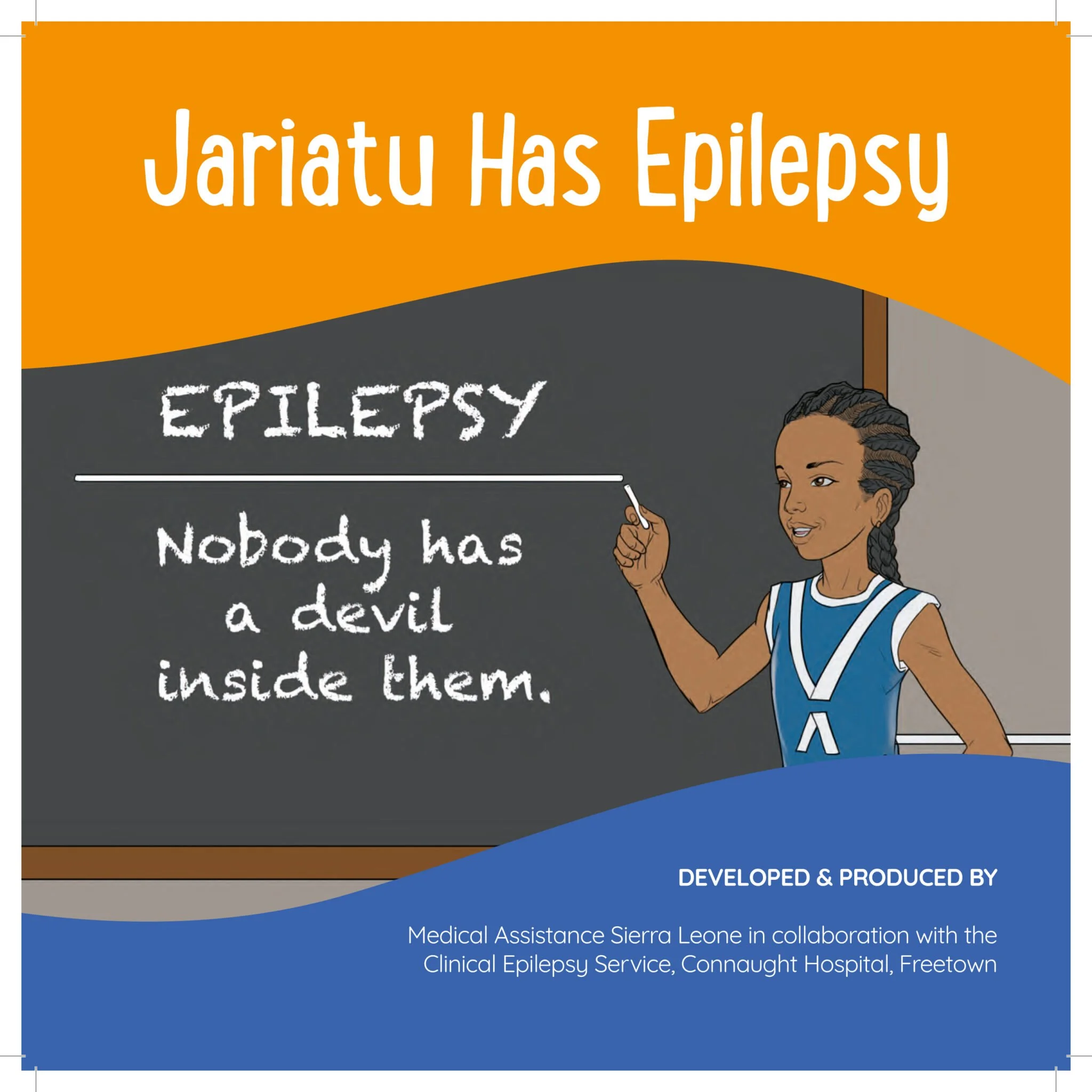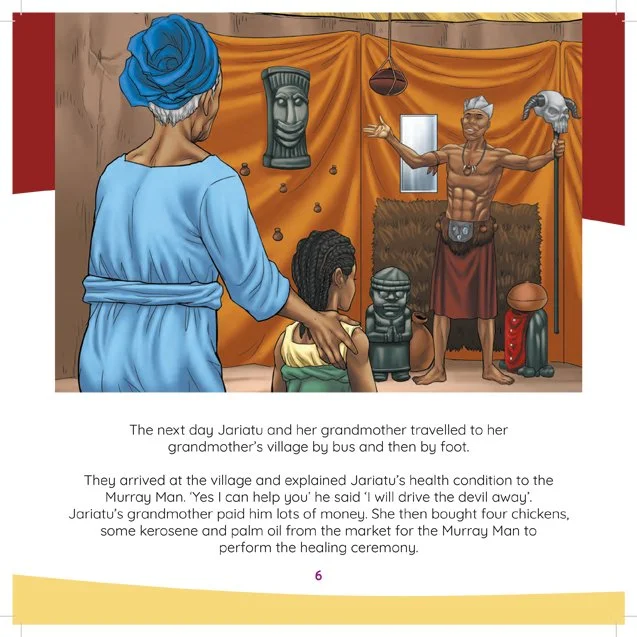‘Nobody has a devil inside them’:
Epilepsy Advocacy in Sierra Leone
Image: Tom Bradley Photography for Medical Assistance Sierra Leone
Epilepsy rates are high in Sierra Leone due to birth trauma, meningitis and malaria. Local studies suggest that as many as 2% of the population have epilepsy.
However, there is still little understanding of epilepsy, especially in rural areas. It is rarely diagnosed, medication is scarce and people with epilepsy often face devastating social exclusion, with profound educational and livelihood consequences, contributing significantly to their poverty. Children with epilepsy are extremely vulnerable. Mortality rates are high, due to the condition and associated neglect.
Misunderstandings about the condition, how it is caused and how it may be treated often leads to discrimination. People very often experience isolation and exclusion from their families and their communities, and many have never been to school, have no source of income and do not have children.
Many people believe that epilepsy is caused by demons or bad spirits. As well as causing dangerous delays to treatment, such beliefs can lead to harmful alternative treatments and depression and associated mental health problems for those affected.
However, with the right type and dosage of medication, about 70% of people with epilepsy can have their seizures completely controlled. Treatment is transforming people’s lives.
In February 2010, Medical Assistance Sierra Leone (MASL) and Consultant Neurologist Dr Lisk of Basildon Hospital with the Epilepsy Association of Sierra Leone established the first functioning clinical epilepsy service in Sierra Leone and there is now a network of 24 clinics across the country.
Over 11,000 people are now registered and receiving treatment for epilepsy through this initiative, and MASL is providing five of the six anti-epileptic drugs used in this programme. A national education and awareness-raising programme brings forward patients for treatment and enables the provision of support and advice through an Epilepsy Support Worker based in each district of the country. However, the programme is currently reaching just 5% of those who require treatment.
Medical Assistance Sierra Leone and their partners aim to reach everyone in Sierra Leone with epilepsy and to give them access to the anti-epileptic medication that they require.
As part of their advocacy work in Sierra Leone, Medical Assistance Sierra Leone produced a short story Jariatu has Epilepsy, which challenges the beliefs associated with epilepsy and educates readers on how to support people with this condition.
Click on below images for downloadable PDFs of Jariatu has Epilepsy (Part 1 is pages 1-7, Part 2 is pages 8-16)
To find out more about the work of Medical Assistance Sierra Leone, please visit http://www.masierraleone.org.uk/epilepsy-support/



